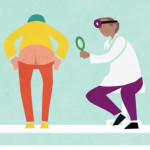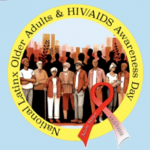Healthy lungs are a key to good quality of life. With effective antiretroviral therapy, people who stay on treatment and achieve viral suppression are no longer at high risk for AIDS-defining opportunistic infections (OIs) that affect the lungs, such as Pneumocystis pneumonia. However, people with a low CD4 T-cell count remain susceptible.
Even with good treatment, people living with HIV have higher rates of certain lung diseases, such as chronic obstructive pulmonary disease (COPD). COPD, including emphysema and chronic bronchitis, causes blockage of airflow and makes breathing more difficult. COPD risk increases with age, and cases are rising among HIV-positive people as they live longer. Chronic inflammation and a higher smoking rate contribute to the elevated risk.
Research shows that people with HIV are more likely to smoke and less likely to quit than their HIV-negative peers. In addition to COPD, smoking also raises the risk for cardiovascular disease, cancer and other health problems.
Unlike some malignancies, lung cancer does not appear to be directly related to immune suppression, but some studies have found that lung cancer incidence is higher among people living with HIV.
Here are some steps you can take to maintain good lung health.
Smoking cessation: The best thing you can do for your lungs is to stop smoking. But nicotine is addictive, and quitting can be a challenge. Some people find nicotine gum or patches, prescription medications or support groups helpful. Vaping is less detrimental than smoking, but the inhaled aerosols also contain harmful chemicals.
The sooner you stop smoking, the better, but quitting is beneficial at any age. The health benefits of smoking cessation begin soon after stopping, but the risk for lung cancer remains elevated compared with never smokers. Annual lung cancer screening is recommended for longtime heavy smokers starting at age 50, but some research suggests HIV-positive people may benefit from starting sooner.
Aerobic exercise: Physical activity that gets your heart pumping and leaves you out of breath improves cardiovascular fitness and can increase lung capacity. This includes brisk walking, running, bicycling, swimming and dancing. Guidelines recommend at least 150 minutes of moderate-intensity activity—ideally, 30 minutes on five days—or 75 minutes of vigorous activity per week, along with muscle strengthening exercises.
Vaccines: Viruses, bacteria and fungal infections can cause pneumonia and other lung diseases. People with HIV should receive an annual flu shot (not the FluMist nasal spray vaccine) and COVID-19 vaccines and boosters when eligible. HIV-positive people should also receive a pneumococcal vaccine to prevent bacterial pneumonia. Preventive vaccines are recommended for everyone, but they’re especially important for people living with HIV.
People with HIV should receive regular care to monitor their overall health. Antiretroviral therapy is the best way to keep HIV in check and allow the immune system to recover, but people with a low CD4 count may need additional medications to prevent or treat OIs. Minor upper respiratory infections are common and usually nothing to worry about, but contact your health care team if you have difficulty breathing, a persistent cough or other ongoing respiratory symptoms.







Comments
Comments